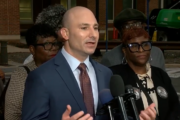With inflation at a 40-year high, 54% of Americans say they have either paused or reduced saving for retirement, according to the 2022 Allianz Life Insurance Company of North America survey. Among those who responded, millennials were the most likely to state they have stopped or reduced retirement savings because of inflation (65%), compared to boomers (40%) and Gen Xers (59%).
When costs increase, you might need to rework your budget to pay for everyday expenses. If you reduce how much you set aside for retirement each month, you could free up some funds. However, failing to save also presents potential drawbacks, especially over the long-term.
If you are thinking about stopping retirement savings because of inflation, it can be worthwhile to:
— Consider inflation over time.
— Look at monthly expenses.
— Survey your job opportunities.
— Reduce during critical moments.
— Set a time to restart contributions.
Consider Inflation Over Time
While steep cost increases can squeeze your current cash flow, inflation tends to be a continual trend. At times, inflation rates are low, such as 3% or less, and not as noticeable. During times of high inflation, like 8% or 10%, the impact can be more readily recognized. High inflation means that the costs of everyday goods typically go up during retirement. “We lose purchasing power as every dollar buys less over time,” says Cynthia Turoski, a financial planner and managing partner at Bonadio Wealth Advisors in Pittsford, New York. “We don’t see the loss on our account statements or in the news like we do for market losses, but it’s slowly, steadily eating away at our finances–the silent thief.”
If you think about how much items cost several decades ago and compare prices to those of today, it can be easier to see the effect of inflation. Looking ahead, retirement could last 20 to 30 years. “That’s a long time for expenses to rise, without even increasing your standard of living,” Turoski says.
Look at Monthly Expenses
When groceries, gas and household goods cost more, you may need to reevaluate how money is spent each month. Start by making a list of necessities and check what you pay for them. Carefully look at where every dollar goes during a typical month. “You may be able to find pockets of expenses you can cut by really going through your bank account and credit card activity,” Turoski says.
There could be recurring subscriptions you no longer need. You could also choose to go out less often and reduce your entertainment bills. If you are making debt payments, such as a credit card bill that rolls over from month to month, consider adjusting funds to get rid of the balance. “If continued investing will cause issues making your minimum outstanding debt payments, then stopping your retirement contributions should be considered,” says William Haight, a registered representative at Capital Choice Financial Group in Phoenix. “This is due to the fact that not making debt payments can lead to late fees, damage to your credit score and other penalties.”
[See: 10 Costs to Include in Your Retirement Budget.]
Survey Your Job Opportunities
If you know you will be up for a promotion soon, you might cut certain costs and continue saving, knowing your salary will increase in the short-term. You could also look for another job to earn more money, such as a side hustle or home business. Switching to a better paying position in a different industry or city might also be an option.
There could be times when you see your future salary in jeopardy. You might be at a company that is hinting at layoffs or asking people to voluntarily cut their hours. “If this is the case, you’ll want to focus on rebuilding your emergency fund before you return to investing toward your retirement,” Haight says.
Reduce Saving During Critical Moments
In some cases, you may decide that money you normally contribute to a retirement account is needed elsewhere each month. “If you’ve gone through this exercise to cut your expenses as far as you can, you can’t make more money, and still find you’re racking up credit card debt, then maybe you do need to reduce your retirement savings,” Turoski says. Emergencies or a job loss could also be times when you withdraw rather than contribute to long-term accounts.
Set a Time to Restart Contributions
If you need to stop saving for several months, it can be helpful to set a date when you will pick up the habit again. “Stopping retirement contributions in the short term typically isn’t much of a problem, but prolonging them can have consequences,” Haight says. “Time and consistency are big factors when developing a financial plan, and limiting time invested in the market gives the market less opportunity to drive wealth.”
Contributing to retirement accounts year after year provides an opportunity to get a return during a recovery period and beyond. “The money you invest today will change the age at which you can retire and how much spending money you’ll have in retirement,” says Jared Weitz, CEO and founder of United Capital Source Inc. in Garden City, New York. As soon as you’re able, you can continue saving for the future and giving your nest egg a chance to grow for as long as possible.
More from U.S. News
New 401(k) Contribution Limits for 2023
9 Ways to Avoid the 401(k) Early Withdrawal Penalty and Other Fees
How to Take Advantage of 401(k) Catch-Up Contributions
Should You Stop Saving for Retirement Because of Inflation? originally appeared on usnews.com







